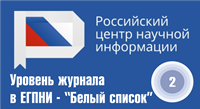Терминологическая дискуссия в современной психологии по феномену «цифровое поколение Z»
Аннотация
Обоснование. В середине XX века широкое распространение информационно-технологической революции привело к появлению многочисленных исследований, посвященных изучению возникшего феномена «цифрового поколения». В научной литературе обнаружено множество вариаций, которые дают разнообразные дефиниции и различным образом именуют субъектов, проживающих в описываемый период времени. Различия взглядов в определении и дефинициях данного поколения среди зарубежных и отечественных ученых, свидетельствуют о неоднозначности понимания и сложности этого явления.
Цель – исследовать понятийное поле феномена «цифровое поколение» и выделить ключевые характеристики, присущие поколению.
Материалы и методы. В качестве методологической основы исследования применяются сравнительно-сопоставительный анализ, синтез и обобщение научных трудов по проблеме исследования.
Результаты. Анализ специальной литературы позволил осуществить авторскую интерпретацию имеющихся терминов и выделить шесть групп терминов с ключевыми характеристиками «цифрового поколения Z»: «Имеющие онлайн-идентичность»; «Технологически продвинутые»; «Поколение неограниченного доступа к информации»; «Мотивированные на частое переключение фокуса внимания»; «Постоянно подключенные к Сети»; «Домоседы». Способность преподавателей высшей школы знать и понимать особенности студентов поколения Z становится определенным ключом к достижению эффективного обучения.
EDN: ZUFDOO
Скачивания
Литература
Список литературы
Дутко, Ю. А. (2020). Поколение Z: основные понятия, характеристики и современные исследования. Проблемы современного образования, 4, 28–37. https://doi.org/10.31862/2218-8711-2020-4-28-37
Левада, Ю. А. (2001). Поколения XX века: возможности исследования. Мониторинг общественного мнения: экономические и социальные перемены, (5), 7–14.
Мирошкина, М. Р. (Ред.) (2015). Методики исследования базовых характеристик участников современного образовательного процесса: научно-методическое пособие. Москва: ФГБНУ ИИДСВ РАО. 95 с.
Попов, Н. П. (2018). Российские и американские поколения XX века: откуда пришли миллениалы? Мониторинг общественного мнения: Экономические и социальные перемены, (4), 309–323. https://doi.org/10.14515/monitoring.2018.4.15
Скоблик, О. Н. (2019). Теория поколений как инструмент анализа процессов развития и формирования личности. Проблемы современного педагогического образования, (63-1), 472–474.
Смирнов, Р. Г. (2019). Операционализация феномена «поколение онлайн». Цифровая социология, 2(4), 31–38. http://dx.doi.org/10.26425/2658-347X-2019-4-31-38
Цымбаленко, С. Б., Шариков, А., Жилавская, И., Майорова-Щеглова, С., & Макеев, П. (2013). Мониторинг и анализ московского информационно-образовательного пространства: Результаты социологических исследований и программирования. Москва: РИЦ МГГУ им. М. А. Шолохова. 108 с.
Шайхисламов, Р. Б. (Ред.) (2021). Z: многообразие идентичностей, ориентаций, поведения: коллективная монография. Уфа: РИЦ БашГУ. 228 с. https://doi.org/10.14258/genz.2021
Шестакова, И. (2017). Живые свидетели эры До-интернета. Общество. Среда. Развитие, (1), 47–51.
Cochrane, R. (2021). A Case Study Examining Japanese University Students' Digital Literacy and Perceptions of Digital Tools for Academic English Language Learning (PhD dissertation). Lancaster. 186 p. Получено с https://www.researchgate.net/profile/Robert-Cochrane-3
Dolot, A. (2018). The characteristic of Generation Z. e-mentor, 2(74), 44–50. http://dx.doi.org/10.15219/em74.1351
Fuentes, G. (2014). Pedagogy with and Against the Flow: Generational Shifts, Social Media, and the Gen Z Brain. В сборнике: 102nd ACSA Annual Meeting Proceedings, Globalizing Architecture: Flows and Disruptions (с. 669–677). https://www.acsaarch.org/proceedings/Annual Meeting Proceedings/ACSA.AM.102/ACSA.AM.102.76.pdf (дата обращения: 15 авг. 2024).
Hendrastomo, G., & Januarti, N. (2023). The characteristics of Generation Z students and implications for future learning methods. Jurnal Kependidikan: Jurnal Hasil Penelitian dan Kajian Kepustakaan di Bidang Pendidikan, Pengajaran dan Pembelajaran, 9(2), 484–496. http://dx.doi.org/10.33394/jk.v9i2.7745
Jayatissa, K. (2023). Generation Z – A new lifeline: A systematic literature review. Sri Lanka Journal of Social Sciences and Humanities, 3(2), 179–186. http://dx.doi.org/10.4038/sljssh.v3i2.110
Linke, K. (2011). Generation Facebook? A History of Social Networks. В материалах: Global Business Management Research Conference, Fulda, Germany. Университет прикладных наук Фульда, Германия, 1–10. https://www.researchgate.net/publication/270281872_generation_facebook_-_the_history_of_social_networks (дата обращения: 15 авг. 2024).
Mertala, P., López-Pernas, S., Vartiainen, H., Saqr, M., & Tedre, M. (2023). Digital natives in the scientific literature: A topic modeling approach. Computers in Human Behavior, 152(2). https://doi.org/10.1016/j.chb.2023.108076
Prensky, M. (2001). Digital Natives, Digital Immigrants. On the Horizon, 9(5–6), 1–6. http://dx.doi.org/10.1108/10748120110424816
Wallis, C. (2006). The multitasking generation. Time South Pacific, 167(13), 48–55. https://www.semanticscholar.org/paper/The-multitasking-generation.-Wallis/a7d22eefb05f7084dacb7991f6eb8cded839ac3b (дата обращения: 15 авг. 2024).
White, D. S., & Cornu, A. L. (2011). Visitors and Residents: A new typology for online engagement. First Monday, 16(9). https://doi.org/10.5210/fm.v16i9.3171
Żarczyńska-Dobiesz, A., & Chomątowska, B. (2014). Pokolenie «Z» na rynku pracy – wyzwania dla zarządzania zasobami ludzkimi. Prace Naukowe Uniwersytetu Ekonomicznego we Wrocławiu, 350, 405–415. http://dx.doi.org/10.15611/pn.2014.350.36
References
Dutko, Yu. A. (2020). Generation Z: Basic Concepts, Characteristics, and Recent Studies. Problems of Modern Education, 4, 28–37. https://doi.org/10.31862/2218-8711-2020-4-28-37
Levada, Yu. A. (2001). Generations of the 20th Century: Research Opportunities. Monitoring of Public Opinion: Economic and Social Changes, (5), 7–14.
Miroshkina, M. R. (Ed.) (2015). Methods for Studying Basic Characteristics of Participants in the Modern Educational Process: Scientific and Methodological Manual. Moscow: Federal State Budgetary Scientific Institution Institute of Information Technologies and Distance Education of the Russian Academy of Education. 95 p.
Popov, N. P. (2018). Russian and American Generations of the 20th Century: Where Do Millennials Come From? Monitoring of Public Opinion: Economic and Social Changes, (4), 309–323. https://doi.org/10.14515/monitoring.2018.4.15
Skoblik, O. N. (2019). Generational Theory as a Tool for Analyzing Development and Formation of Personality. Problems of Modern Pedagogical Education, (63-1), 472–474.
Smirnov, R. G. (2019). Operationnalization of the Phenomenon "Generation Online". Digital Sociology, 2(4), 31–38. http://dx.doi.org/10.26425/2658-347X-2019-4-31-38
Tsymbalenko, S. B., Sharikov, A., Zhilavskaya, I., Mayorova-Shcheglova, S., & Makeev, P. (2013). Monitoring and Analysis of the Moscow Information-Educational Environment: Findings of Sociological Studies and Programming. Moscow: Publishing Centre MGGU named after M. A. Sholokhov. 108 p.
Shaykhislav, R. B. (Ed.) (2021). Z: Variety of Identities, Orientations, Behaviors: Collective Monograph. Ufa: Research and Innovation Centre of Bashkir State University. 228 p. https://doi.org/10.14258/genz.2021
Shestakova, I. (2017). Living Witnesses of the Pre-Internet Era. Society. Environment. Development, (1), 47–51.
Cochrane, R. (2021). A Case Study Examining Japanese University Students' Digital Literacy and Perceptions of Digital Tools for Academic English Language Learning (PhD dissertation). Lancaster. 186 p. Retrieved from https://www.researchgate.net/profile/Robert_Cochrane-3
Dolot, A. (2018). The Characteristics of Generation Z. e-mentor, 2(74), 44–50. http://dx.doi.org/10.15219/em74.1351
Fuentes, G. (2014). Pedagogy With and Against the Flow: Generational Shifts, Social Media, and the Gen Z Brain. In Proceedings of the 102nd Annual Meeting of the Association of Collegiate Schools of Architecture (ACSA): Globalizing Architecture: Flows and Disruptions (pp. 669–677). Retrieved from https://www.acsaarch.org/proceedings/Annual_Meeting_Proceedings/ACSA.AM.102/ACSA.AM.102.76.pdf (Accessed August 15, 2024).
Hendrastomo, G., & Januarti, N. (2023). The Characteristics of Generation Z Students and Implications for Future Learning Methods. Journal of Education: Journal of Research and Bibliographic Studies in Education, Teaching and Learning, 9(2), 484–496. http://dx.doi.org/10.33394/jk.v9i2.7745
Jayatissa, K. (2023). Generation Z – A New Lifeline: A Systematic Literature Review. Sri Lanka Journal of Social Sciences and Humanities, 3(2), 179–186. http://dx.doi.org/10.4038/sljssh.v3i2.110
Linke, K. (2011). Generation Facebook? A History of Social Networks. Paper presented at Global Business Management Research Conference, Fulda, Germany. Retrieved from https://www.researchgate.net/publication/270281872_generation_facebook_-_the_history_of_social_networks (Accessed August 15, 2024).
Mertala, P., Lopez-Pernas, S., Vartiainen, H., Saqr, M., & Tedre, M. (2023). Digital Natives in the Scientific Literature: A Topic Modeling Approach. Computers in Human Behavior, 152(2). https://doi.org/10.1016/j.chb.2023.108076
Prensky, M. (2001). Digital Natives, Digital Immigrants. On the Horizon, 9(5–6), 1–6. http://dx.doi.org/10.1108/10748120110424816
Wallis, C. (2006). The Multitasking Generation. Time South Pacific, 167(13), 48–55. Retrieved from https://www.semanticscholar.org/paper/The-multitasking-generation.-Wallis/a7d22eefb05f7084dacb7991f6eb8cded839ac3b (Accessed August 15, 2024).
White, D. S., & Cornu, A. L. (2011). Visitors and Residents: A New Typology for Online Engagement. First Monday, 16(9). https://doi.org/10.5210/fm.v16i9.3171
Żarczyńska-Dobiesz, A., & Chomątowska, B. (2014). Generation Z in the Labor Market – Challenges for Human Resource Management. Wrocław University of Economics Publishing, 350, 405–415. http://dx.doi.org/10.15611/pn.2014.350.36
Copyright (c) 2025 Maria I. Ryzhkova, Lidia S. Rychkova

Это произведение доступно по лицензии Creative Commons «Attribution-NonCommercial-NoDerivatives» («Атрибуция — Некоммерческое использование — Без производных произведений») 4.0 Всемирная.





































